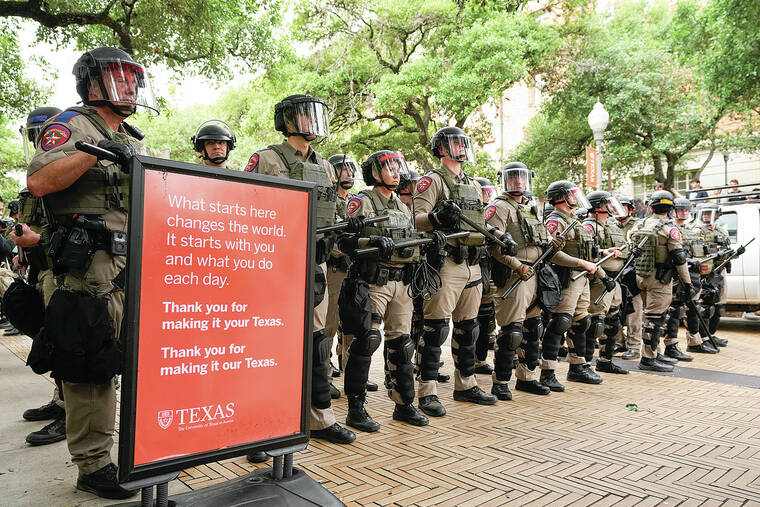College protesters make divestment from Israel a rallying cry
As they gathered near the guarded gates of Columbia University in upper Manhattan on Tuesday, a hundred or so protesters began to chant: “Disclose, divest, we will not stop, we will not rest.”
“Divest” is a demand that has been repeated, on banners, in editorials in student newspapers and during rallies that are sweeping across campuses now gripped by a wave of pro-Palestinian activism.
ADVERTISING
What it actually means has varied in scope, and level of detail. At Yale and Cornell, students have called on the universities to stop investing in weapons manufacturers. Columbia students are demanding the sale of holdings in funds and businesses that activists say are profiting from Israel’s invasion of the Gaza Strip, and the longer-term occupation of Palestinian lands — including Google, which has a large contract with the Israeli government, and Airbnb, which allows listings in Israeli settlements on the occupied West Bank.
Researchers say the impact of any divestment would ultimately be negligible on the businesses and on Israel. They add that if universities give up votes as shareholders at the companies, divestment could even be counterproductive in pressuring companies to change their practices.
Universities have so far rebuffed exhortations to divest. Defenders of Israel say these calls are unfair to a country that is under threat of attack, and antisemitic because they target the only Jewish-majority nation in the world. That’s a long-running accusation against the “boycott, divestment, sanctions” movement targeting the country.
But the pro-Palestinian activists, many of whom are Jewish, see divestment as a clear and achievable way to force colleges to take action on the issue, an important symbolic victory and one that would raise awareness of their concerns. They cite the success of past efforts, including how students in the 1980s lobbied their universities to divest from companies that did business in apartheid South Africa, as well as from fossil fuel companies.
“First and foremost, we want the effect to be for Columbia, because that’s what we have power over,” said Ray Guerrero, a graduate student at Columbia’s School of Public Health who is an organizer with Columbia University Apartheid Divest, a student-led movement. “But we hope this expands, so these companies understand what the ramifications are.”
The universities facing these calls have enormous endowments, in the billions of dollars, that are invested across financial markets, in stocks, real estate and large investment funds.
Divesting, simply put, means selling holdings, often those that are objectionable.
One often-cited example took place in the 1980s, targeting companies that did business with South Africa, which was under apartheid rule. Columbia made headlines when it sold $39 million of stock it held in companies including Coca-Cola, Ford Motor and Mobil Oil following weeks of sit-in protests from students on its campus.
Other schools followed suit. In total, more than 150 universities divested from companies doing business in South Africa, part of a tapestry of penalties levied against the country.
Last week The Cornell Daily Sun endorsed calls for the university to divest from arms manufacturers directly involved in Israel’s campaign.



